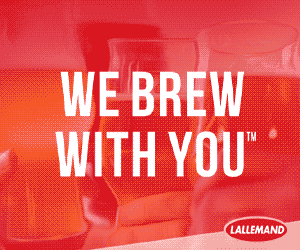Victory Brewing Co.’s PrimaPils clone
Victory Brewing Co.’s PrimaPils clone
(5 gallons/19 L, all-grain)
OG = 1.047 FG = 1.006
IBU = 45 SRM = 3 ABV = 5.3%
Ingredients
9 lbs. (4.1 kg) German Pilsner malt
4 oz. (113 g) acidulated malt
1.6 AAU Hallertau Mittelfrüh hops (60 min.) (0.5 oz./14 g at 3.1% alpha acids)
2.3 AAU Hallertau Mittelfrüh hops (15 min.) (0.75 oz./21 g at 3.1% alpha acids)
0.9 AAU Tettnang hops (5 min.) (0.25 oz./7 g at 3.6% alpha acids)
1 AAU Spalt hops (5 min.) (0.33 oz./11 g at 3% alpha acids)
1.25 AAU Spalt Select hops (5 min.) (0.25 oz./7 g at 5% alpha acids)
1.65 AAU Czech Saaz hops (5 min.) (0.66 oz./13 g at 2.5% alpha acids)
0.5 oz. (14 g) Hallertau Mittelfrüh whole hops (hopback)
1.6 oz. (45 g) Tettnang whole hops (hopback)
0.5 oz. (15 g) Spalt whole hops (hopback)
0.15 oz. (4 g) Spalt Select whole hops (hopback)
0.28 oz. (8 g) Czech Saaz whole hops (hopback)
1 Whirlfloc tablet (10 min.)
0.5 g Yeastex yeast nutrient (10 min.)
SafLager W-34/70, White Labs WLP830 (German Lager), or Wyeast 2124
(Bohemian Lager) yeast
7⁄8 cup corn sugar (if priming)
Step by Step
Using a medium-thin mash, achieve a protein rest mash temperature of 122 °F (50 °C). Hold at 122 °F (50 °C) for 20 minutes. Raise to 149 °F (65 °C) and hold for 45 minutes for beta amylase conversion. Raise to 158 °F (70 °C) and hold for 15 minutes for additional alpha amylase conversion. Raise to 170 °F (77 °C) for mash out. Recirculate for 10 minutes. Once the wort is running fairly clear, begin wort collection.
Begin sparging the grains when they are first exposed during runoff. Using sparge water around 5.2 pH is ideal. Collect 6.5 gallons (25 L) of wort.
Boil for 90 minutes, adding ingredients at times indicated. A vigorous, rolling boil is critical to limiting dimethyl sulfide (DMS). If using whole flower hops, use a big enough bag to contain them while allowing proper circulation. Otherwise, use pellet hops to have proper hop/wort contact time to achieve the correct results.
Once boil is complete, whirlpool through your hopback (or add these hops directly to your kettle if you don’t have a hopback or are using pellet hops), and let settle for 20 minutes. Chill as quickly as possible, then transfer to a sanitized fermenter. Once wort is at 52 °F (11 °C), pitch yeast and oxygenate thoroughly if using liquid yeast or repitching from a slurry. (Being a lager, it’s best to pitch at least double the amount of yeast as you would for an ale. You can accomplish this by making a starter if using liquid yeast, or pitching two sachets.) Pitch at 52 °F (11 °C) and let the beer ferment for about two weeks. Allow to rise to 56 °F (13 °C) to finish fermenting. Hold the beer at 56 °F (13 °C) until no diacetyl is detected, usually 1–3 days. Remove yeast or rack beer off of it.
Slowly cool the beer down to 32 °F (0 °C) over 10–14 days, then hold at or below 32 °F (0 °C) for a minimum of one week, but a longer lagering period of a few weeks is even better. If you plan to fine or filter the beer, do so before packaging. Package with proper carbonation of 2.7 v/v or add priming sugar to bottle ferment for carbonation.
Extract only version:
Replace malts with 5.1 lbs. (2.3 kg) Pilsen dried malt extract and 1 tsp. 88% lactic acid. Heat 3 gallons (11 L) of clean brewing water to near-boiling temperatures, remove from flame and slowly stir in half of the malt extract. Return to flame and bring to boil. Boil for 60 minutes, adding the hops according to the specified schedule in the ingredient list. Add Whirlfloc and Yeastex with 10 minutes left in the boil, and the remainder of the malt extract with 5 minutes remaining.
Follow the remainder of the all-grain recipe, topping the fermenter up to 5 gallons (19 L) after chilling with pre-boiled water.
Tips for success:
The correct amount of clean, healthy yeast (coupled with good aeration if using liquid yeast) will result in a clean fermentation, which will allow all of the malt and hops goodness to shine.
High-quality hops in their freshest state will impart that beautiful bouquet. It is better to use fresh hops that are not on the ingredient list than to use older, less fresh hops that are.
Written by Dave Clark

Victory Brewing Co.’s award-winning, amped up German Pilsner with fresh noble hop aroma, bracing hop dryness, gentle malt character, and ultra clean fermentation.



